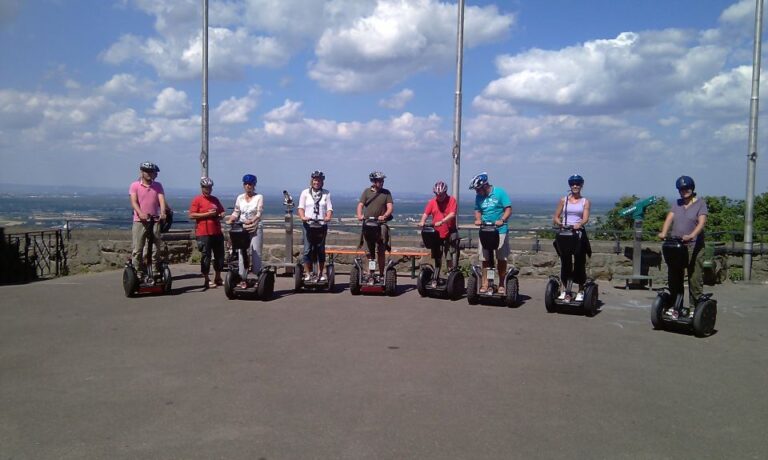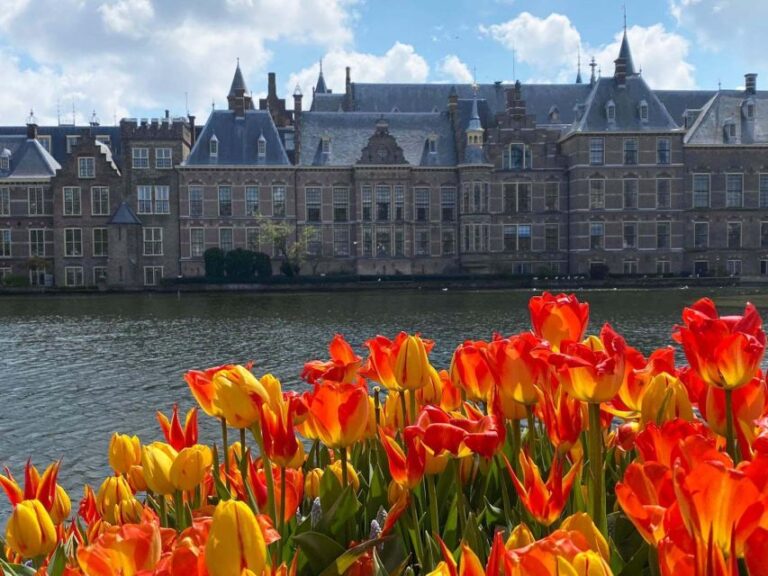Berlin’s rich history of sexual liberation and LGBTQIA+ emancipation is the focus of an innovative guided augmented reality tour. Delving into the vibrant Roaring Twenties scene, where boundaries were pushed, and exploring the pioneering work of Magnus Hirschfeld’s trailblazing Institute of Sexual Science, the tour offers a deeper understanding of the city’s pivotal role in the evolution of modern sexual science. However, the complex and contradictory relationship between the Nazi regime’s persecution of LGBTQIA+ people and the presence of prominent gay figures within its ranks remains a thought-provoking and sobering aspect of this captivating exploration.
Key Points
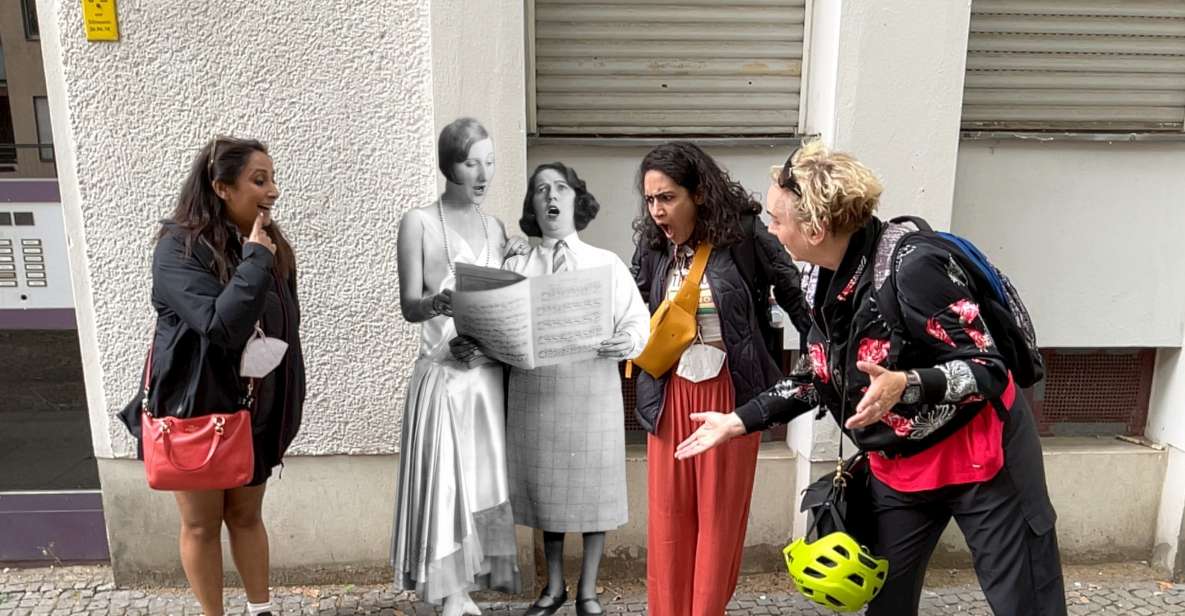
- Explore Berlin’s vibrant Roaring Twenties’ sexual culture, including nudism, kinks, and the pioneering work of sexologist Magnus Hirschfeld.
- Discover the world’s first institute dedicated to the scientific study of human sexuality – the Institute of Sexual Science.
- Understand the origins and evolution of LGBTQIA+ emancipation and feminism in Berlin during this era.
- Explore the complex and contradictory relationship between Hitler’s public stance on homosexuality and his inner circle’s known homosexuality.
- Uncover the severe persecution and human rights violations experienced by LGBTQIA+ individuals under the Nazi regime.
It's also worth checking out some other tours and experiences nearby.
Roaring Twenties’ Sexual Culture
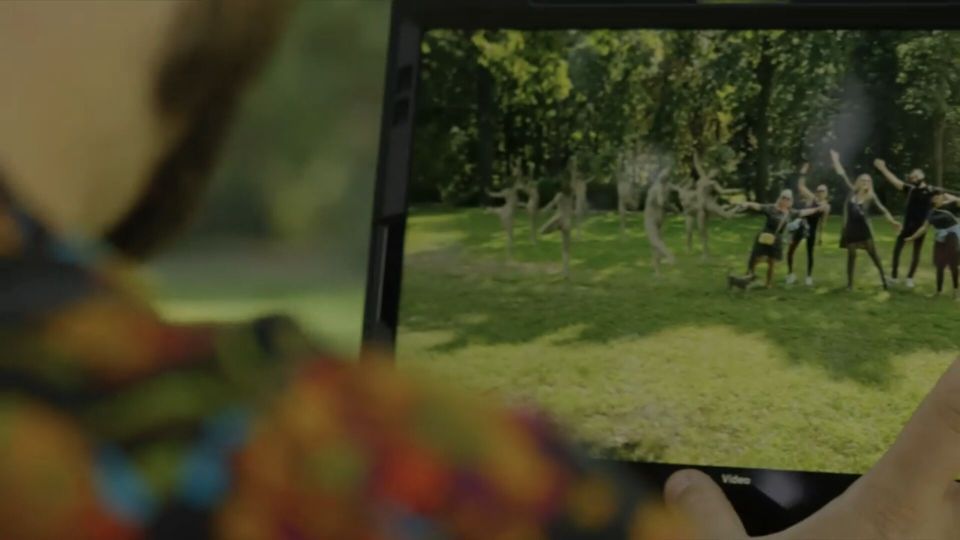
During the Roaring Twenties, Berlin’s sexual culture thrived, encompassing a vibrant scene of nudism, kinks, and fetishes that pushed the boundaries of societal norms. The city’s permissive atmosphere allowed for the exploration of taboo desires, from underground fetish parties to the emergence of nudist movements.
Berliner’s embraced their sexuality, shedding social inhibitions and challenging the conservative values of the time. This era saw the rise of influential figures like Magnus Hirschfeld, whose pioneering work at the Institute of Sexual Science laid the foundations for modern sexual science and the LGBTQIA+ emancipation movement.
Berlin’s reputation as a sexually liberated metropolis would soon come to an abrupt halt as the Nazi regime’s rise to power ushered in a dark chapter of repression and persecution.
World’s First Sexual Science Institute
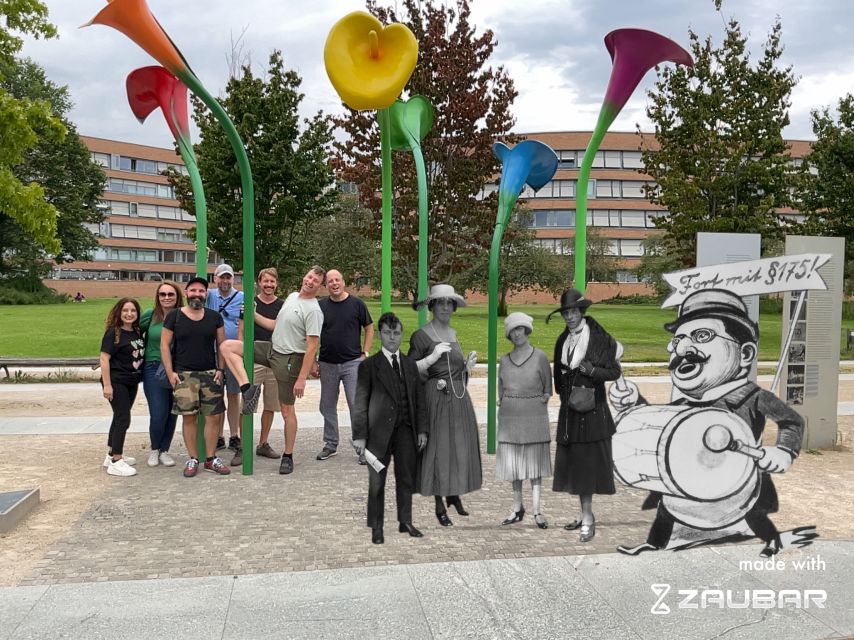
Amidst the sexually liberated culture of Berlin’s Roaring Twenties, the world’s first institute dedicated to the scientific study of human sexuality, the Institute of Sexual Science, emerged as a pioneering force.
Established by the prominent sexologist Magnus Hirschfeld, the institute aimed to advance understanding and acceptance of diverse sexual orientations and identities, becoming a hub for groundbreaking research, education, and advocacy.
The institute’s work covered a wide range of topics, including:
- Sexology and the study of human sexual behavior
- The early LGBTQIA+ emancipation movement
- Advocacy for transgender and intersex rights
The Institute of Sexual Science was a revolutionary force, challenging societal norms and paving the way for a more progressive and inclusive understanding of human sexuality.
LGBTQIA+ Emancipation and Feminism
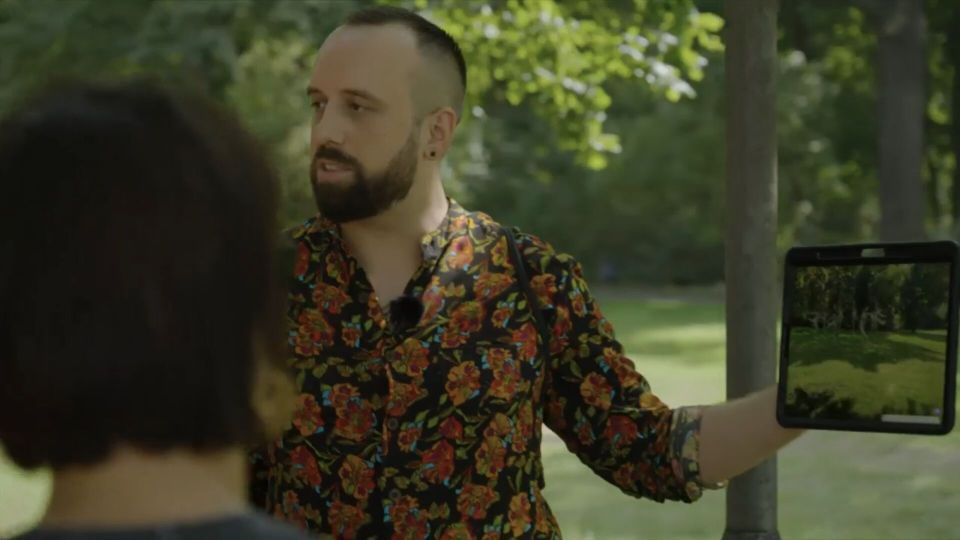
Alongside the progressive sexual culture of Berlin’s Roaring Twenties, the early forms of LGBTQIA+ emancipation and feminism took root, advocating for greater rights and acceptance for marginalized communities.
The tour explores the origins of these important social movements, tracing how Berlin became a hub for the emerging LGBTQIA+ rights movement. Participants will learn about pioneering activists who fought against discrimination and pushed for legal and societal changes.
The tour also delves into the early feminist movement, examining how women in Berlin asserted their autonomy and challenged traditional gender norms. Through this lens, visitors gain a deeper understanding of Berlin’s complex history and the ongoing struggle for equality and justice.
Hitler’s Contradictory Homosexuality Relationship
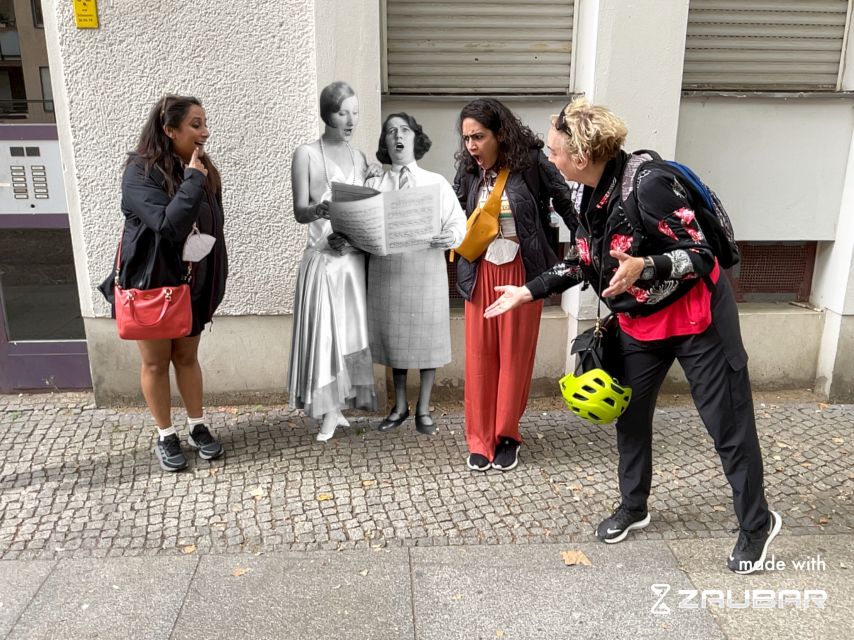
Hitler’s relationship with homosexuality was deeply contradictory. Despite his public condemnation of homosexuality, evidence suggests he may have had same-sex attractions and surrounded himself with known homosexuals.
The Nazi regime’s persecution of LGBTQIA+ individuals was severe, with thousands of people imprisoned, castrated, or sent to concentration camps. However, some of Hitler’s closest associates, such as Ernst Röhm and Heinrich Himmler, were openly gay.
Plus, the Führer himself was rumored to have had intimate relationships with men, though these allegations remain unproven.
The complex and often contradictory nature of Hitler’s views on homosexuality reveals the complexities of LGBTQIA+ experiences under the Nazi regime.
LGBTQIA+ People’s Fate in Nazi Germany
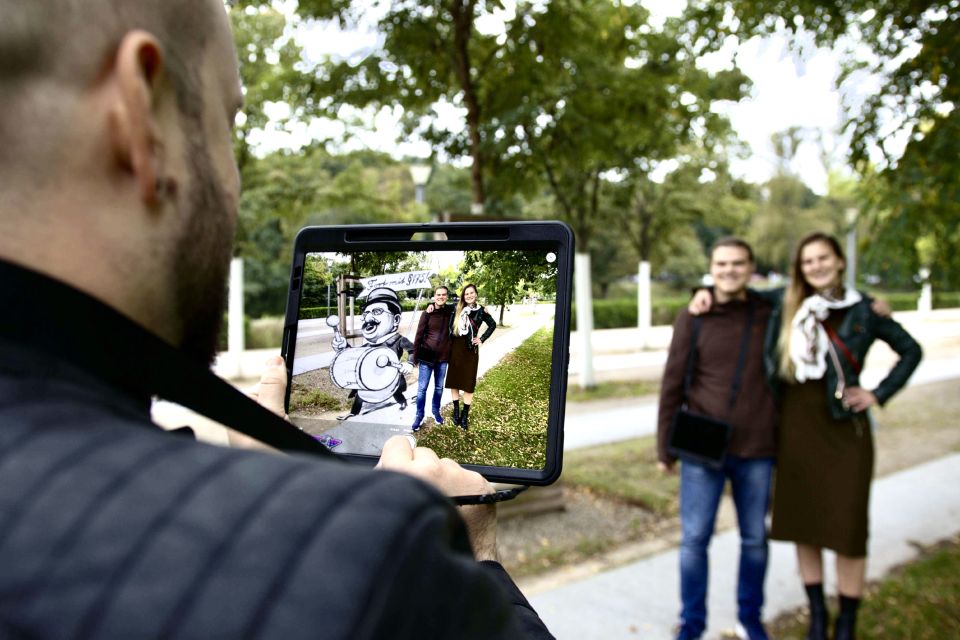
The Nazis subjected LGBTQIA+ individuals to severe persecution, with thousands imprisoned, castrated, or sent to concentration camps under the regime’s anti-homosexuality policies.
Adolf Hitler viewed homosexuality as a threat to the ‘Aryan race’ and the Nazi Party sought to eradicate it from German society. The notorious Paragraph 175 of the German penal code was expanded to criminalize even the most minor same-sex behaviors.
LGBTQIA+ people faced intense discrimination, torture, and death at the hands of the Nazi regime. Many were forced to wear pink triangles as a badge of shame.
This dark chapter in history underscores the profound injustice and human rights violations experienced by LGBTQIA+ communities under Nazi rule.
Contemporary Sexual Life in Berlin
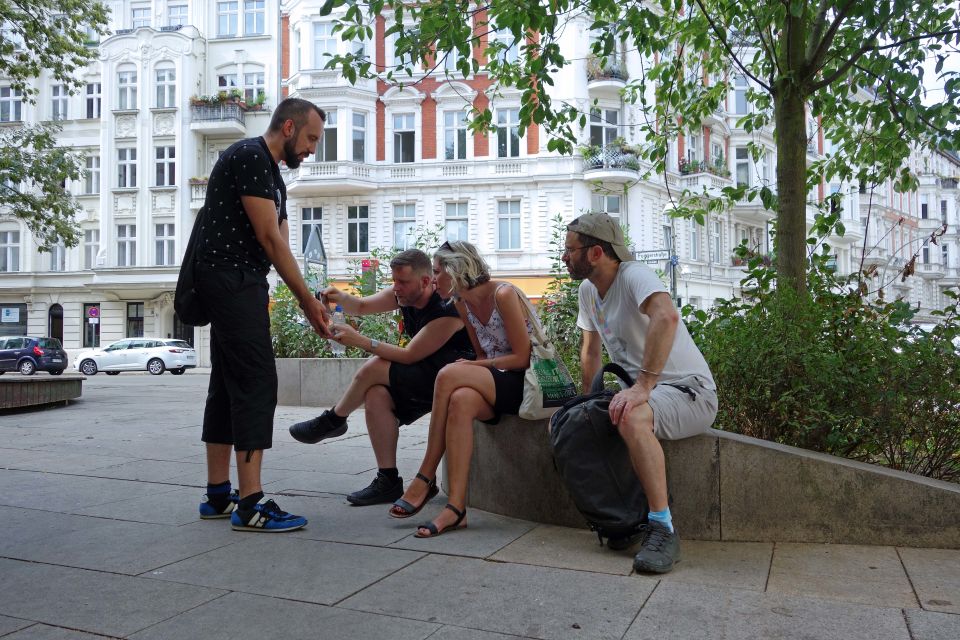
Today, Berlin remains a hub of diverse and vibrant sexual expression, hosting Europe’s largest fetish festival and a thriving club scene that celebrates sexuality.
The annual Folsom Europe festival draws thousands of attendees from around the world, indulging in all manner of kinks and fetishes in a safe, consensual environment.
Berlin’s nightlife scene is renowned for its uninhibited attitudes towards sexuality, with clubs like Berghain and Kitkat offering a liberating space for sexual exploration and experimentation.
Beyond the nightlife, the city also boasts a wealth of sex-positive resources, from specialized sex shops to informative workshops and support groups, catering to the diverse sexual needs and interests of its residents.
Europe’s Biggest Fetish Festival
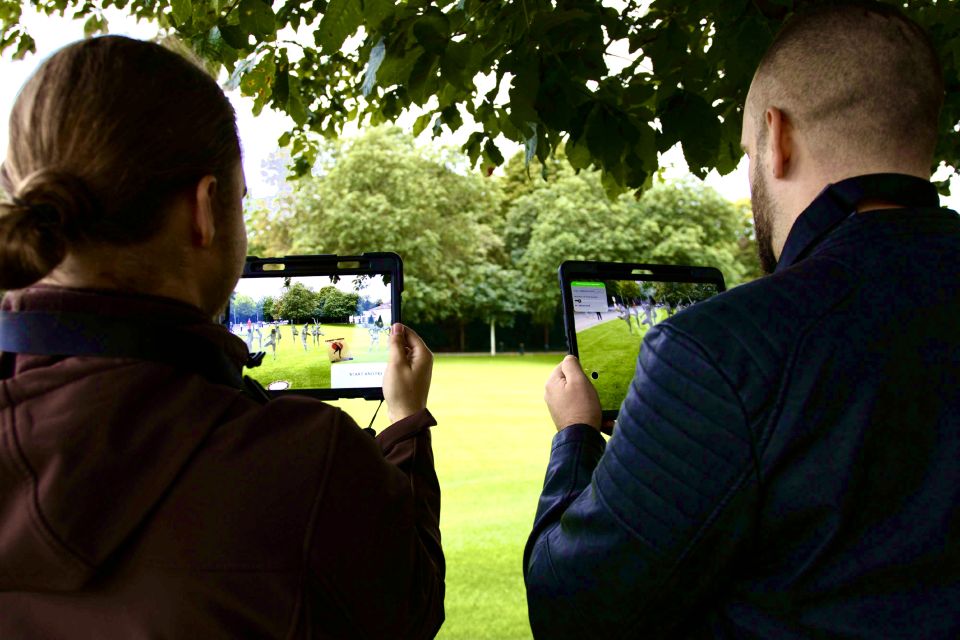
Folsom Europe, Europe’s largest fetish festival, draws thousands of attendees from around the world each year, offering a safe and consensual space for indulging in a diverse array of kinks and fetishes. Hosted in Berlin, the festival celebrates the city’s rich history of sexual liberation and expression. From bondage demonstrations to dungeon parties, the four-day event caters to a wide range of interests and preferences. Visitors can explore vendor stalls, attend educational workshops, and enjoy the vibrant BDSM community. The festival’s inclusive atmosphere and focus on consent make it a unique and empowering experience for those seeking to explore their sexuality in a judgment-free environment.
| Event Details | |
|---|---|
| Duration | 4 days |
| Location | Berlin, Germany |
| Attendance | Thousands |
| Focus | Kinks, Fetishes, BDSM |
Sexuality in Berlin’s Clubs
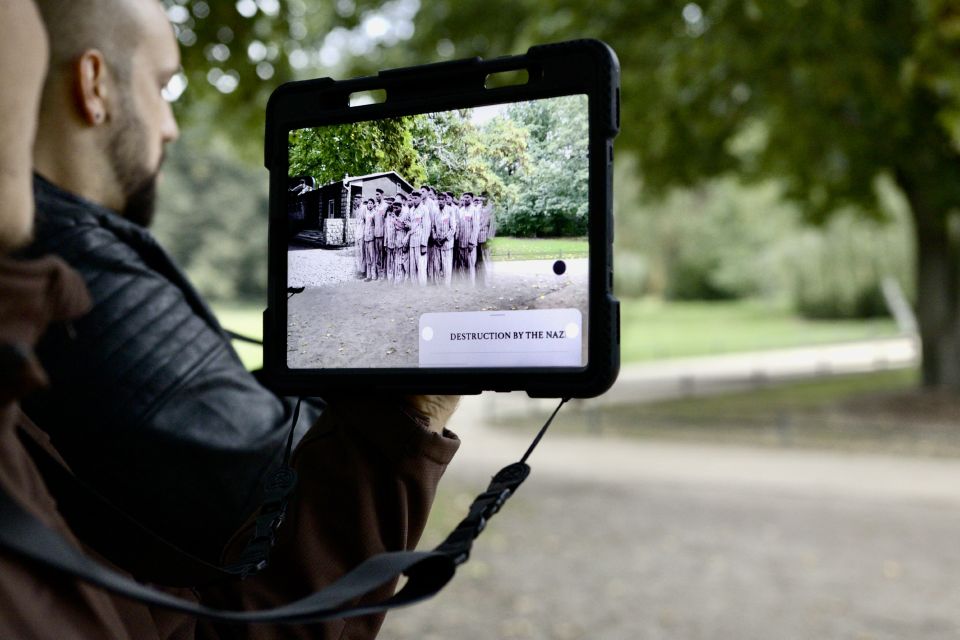
While Folsom Europe caters to a specific fetish community, Berlin’s vibrant club scene offers a diverse range of sexual expression and experiences for visitors.
From the iconic Kit Kat Club with its liberating dress code and sensual atmosphere, to the pulsing beats and boundary-pushing performances at Berghain, the city’s nightlife embraces a spectrum of sexuality.
Some of the notable clubs include:
- SchwuZ, a long-standing LGBTQIA+ hub known for its welcoming vibe and inclusive dancefloors.
- The Pussy Club, which celebrates female sexuality with erotic shows and themed nights.
- Suicide Circus, a gritty industrial venue that hosts alternative fetish events and underground parties.
Sexuality is woven into the very fabric of Berlin’s nightlife, creating an environment where inhibitions fade and self-expression thrives.
Here's a few more nearby tours and experiences we think you'll like.
Frequently Asked Questions
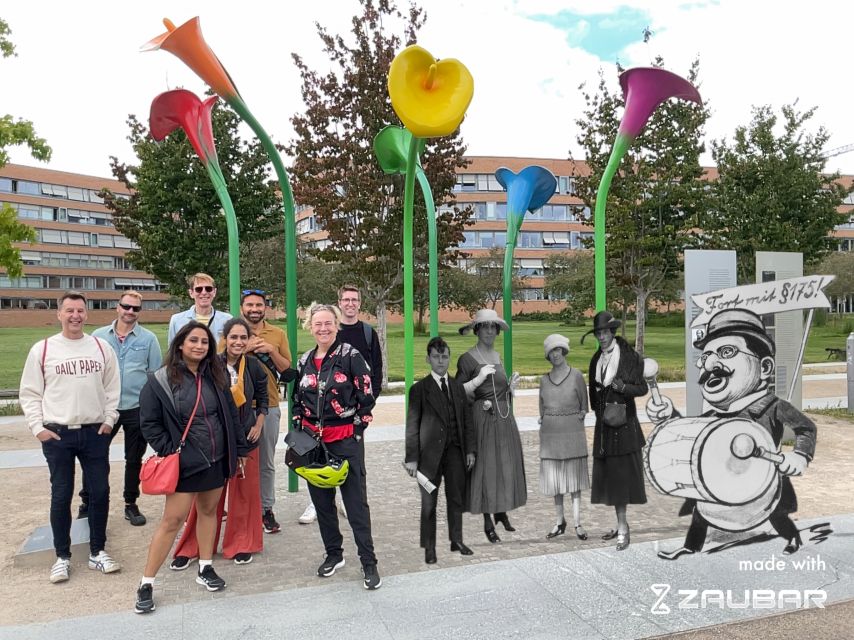
Are There Any Age Restrictions for the Tour?
The tour is suitable for ages 18 and older. There is an age restriction in place to ensure the content is appropriate for the audience.
Is the Tour Wheelchair Accessible?
The tour is wheelchair accessible. The overview states that the tour is suitable for all ages 18 and up, and it specifies that the tour is wheelchair accessible.
What Is the Maximum Number of Participants?
The tour is limited to a maximum of 10 participants. This allows for an intimate and personalized experience, ensuring each guest receives the full attention of the certified guide.
Where Does the Tour Start and End?
The tour starts at Schloss Bellevue in Berlin and ends at Nollendorfplatz. It’s a 3.5-hour guided tour that’s suitable for ages 18+ and limited to 10 participants.
What Type of Public Transport Ticket Is Included?
The tour includes a public transport ticket valid for at least 2 hours after the start of the tour, allowing participants to conveniently explore Berlin’s history of sexuality and contemporary sexual culture.
Not for you? Here's more of our most recent tour reviews happening neaby
- Classic Concert at Charlottenburg Palace
- Berlin: Queercitypass With Transportation and Discounts
- Berlin Night Tours – Romantic Night & Evening Tours Berlin
- Berlin Highlights: 3-Hour Bike Tour
- Berlin: Gourmet Food & Cultural Walking Tour
- VIP Private Segway Tour
- Berlin: Self-Guided Tour of Over 100 Sights
- David Bowie in Berlin – 3-Hour Private Tour
- Berlin: Urban Raw & Eastside
- Saturday Night Fever: A Berlin Nightlife Experience
- Berlin: Sachsenhausen Memorial 6-Hour Tour in English
- Skip-the-line Boat Cruise and Berlin’s Old Town Guided Tour
- Berlin: Architectural Highlights Private Black Van Tour
- From Berlin: Potsdam Half-Day Guided Tour
- Spy & Escape at the Berlin Wall | Mobile Outdoor-Escape Game
Recap
Berlin’s history of sexual liberation and LGBTQIA+ emancipation is a complex and fascinating story. The city’s Roaring Twenties scene pushed boundaries, while the Nazi regime’s persecution of LGBTQIA+ people was contradictory.
Today, Berlin remains a hub of sexual diversity, hosting Europe’s biggest fetish festival and a vibrant club scene. This guided augmented reality tour provides a deeper understanding of the city’s pivotal role in the evolution of modern sexual science and the ongoing struggle for equality.

